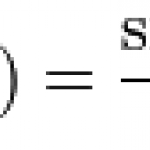Free Thought
After articulating that my most dire need is to get funded, it may seem disjointed to embark on a series of blog posts about teaching, but there you have it, the life of a professor at a place that requires both research and teaching. I still contend that I will get fired from my job much more quickly for failure to teach a course than failure to get funded, so I must do something about the new preparation I have for the fall.
The new course, "Experimental Design and Data Analysis," is a graduate-only course with only a loose definition in the course catalog. It hasn't been taught for the…
Confessions of a Community College Dean: College Prep
"In some circles, 'college' is an undifferentiated term for a place that other people go to get the kinds of jobs that other people get. It's probably some kind of racket, though the exact workings are hard to detail.
In some circles, 'college' is a place to find a mate, go to football games, and/or party. It's a sort of way station between childhood and adulthood, with no particular connection to the outside world. It's an expected stage of life â it's just what you do after high school â regardless of whether you have any idea what you…
Over at the optimizer's blog, quantum computing's younger clown discusses some pointers for giving funny talks. I can still vividly remember the joke I told in my very first scientific talk. I spent the summer of 1995 in Boston at the Smithsonian Astrophysical Observatory (photo of us interns) working on disproving a theory about the diffuse interstellar absorption bands by calculating various two photon cross sections in H2 and H2+ (which was rather challenging considering I'd only taken one quarter of intro to quantum mechanics at the time!) At the end of the summer all the interns gave…
Last week we did the sinc function. Let's do it again!
The function, to refresh our collective memory, is this:
Now I was thinking about jumping right into some contour integration, but on actually doing it again I see that it's a little hardcore for one post so eventually when we do it we'll have to stretch it out over probably three posts. Probably it'll be a Friday-Saturday thing culminating on an official Sunday Function. But it ain't gonna be this week. This week we're going to do three ways of computing a limit. There's more, a bunch more, but we're going to just do three.
As we…
LIGO: the Laser Interferometer Gravitational-Wave Observatory
A comprehensive review article on LIGO, free online for a limited time.
(tags: articles science gravity astronomy physics relativity precision-measurement)
Never build a relationship on books | Books | guardian.co.uk
"I don't know if Borders will actually be making recommendations for dates in the same way as they recommend books, but it would be priceless if members got regular email updates: "Did you enjoy, Mark, 34, of Swindon? Then you should try Gareth, 36, of Slough." Or: "After dating Sally of Birmingham, 86 per cent of…
It is now abundantly clear that the global economy remains mired in a dismal slump. Consumer confidence is still hurting; the unemployment is still rising; home prices are still falling. Despite the best efforts of Congress and the Treasury Department, nobody knows where the bottom is, or when it will arrive.
Obviously, there are no easy solutions. But it's worth considering how we got here if only to better understand how we might get out. One way to look at the current mess is as a collective breakdown of trust, which led (after the failure of Lehman Brothers, etc.) to frozen credit markets…
Field-sensitive addressing and control of field-insensitive neutral-atom qubits : Abstract : Nature Physics
"Here, we demonstrate the selection of individual qubits with external fields, while the qubits are in field-insensitive superpositions. We use a spatially inhomogeneous external field to map selected qubits to a different field-insensitive superposition, minimally perturbing unselected qubits, despite the fact that the addressing field is not spatially localized. We show robust single-qubit rotations on neutral-atom qubits located at selected lattice sites. This precise coherent…
Via Lance Fortnow's Twitter post, it's interesting to see Communications of the ACM editor Moshe Y. Vardi on Open Access:
First, a point of precision. Open-access experts distinguish between "Gold OA," described earlier, and "Green OA," which allows for open access self-archiving of material (deposit by authors) that may have been published as non-open access. ACM Copyright Policy allows for self-archiving, so ACM is a Green-OA publisher. Still, why doesn't ACM become a Gold-OA publisher?
*snip*
As for ACM's stand on the open-access issue, I'd describe it as "clopen," somewhere between open…
ArXiview, my arXiv browsing iPhone app, has been updated for the new iPhone OS 3.0. New features include:
Search fields now accept boolean queries and exact phrase queries. Touch the little (i) icon to get info on this feature from the search page.
Search by identifier has been added.
There is now an in application emailer. So when you want to email yourself a reference the program doesn't quit out of the app.
Added the cond-mat category for quantum gases.
The app now sorts resorts in reverse chronological order.
A bunch of bug fixes (search by category in particular was acting buggy.)…
Summer doesn't officially start here in Seattle until the fourth of July, but the summer vibe is definitely here. Which means no teaching, so it's all research all the time. But a man cannot live by his own research alone, which leads me to the vast brain dump that is the internet.
Things found...
The Innsbruck group has a new paper out on a very cool way to shuffle ions in a trap: arXiv:0906.5335
The info processor points to a review of power laws in finance/economics
Via the one honest man a strangely mesmerizing history of yield curve spreads:
It looks like a group has finally gotten…
The Rundkvist family's aging computer collection is in a sad state.
Our newest machine is also the only one that's still working flawlessly. A little 2008 LG netbook, it runs Win XP and Ubuntu linux and is mainly used by Junior as a gaming machine. When travelling, my wife and I like to bring it along for its handy dimensions and slight weight, but the dinky screen doesn't lend itself to everyday computing.
My dear 2005 Dell laptop, on which I type these lines, is barely holding together. Its recently renewed Win XP installation is flaky, booting up with an arcane error message and unable to…
Strong black tea is my drug of choice. But I got fed up with caffeine addiction a few years back and started to limit my intake. Currently I'm at 1.5 litres every second day, which means that my system is used to going without caffeine for over 40 hours at a time -- counted from afternoon tea on a Monday to morning tea on a Wednesday for instance. This regimen works out to an average daily intake of 190 milligrams of caffeine. Coffee has about 1.7 times the caffeine in strong black tea, which in turn has 2.7 times the caffeine in Coke. But I never have coffee and very rarely any caffeinated…
DNA Evidence Frees Man From Zoo | The Onion - America's Finest News Source
"Shortly after the findings were revealed, Phoenix Zoo staff tranquilized, crated, and transported Panovich by helicopter to his Mesa, AZ home, where he was released into his front yard and reintroduced to his mate and two young."
(tags: onion silly animals)
The Chocolate Chip Cookie Bowl Sundae - Ruhlman.com
"Last Sunday morning, my son James said, "Dad, what if you made a bowl out of cookie dough?"
I'm the first to admit that there are almost no truly new culinary innovations or ideas, only variations on what's…
Some highlights from the IEEE's very fine Annals of the History of Computing, v31i2. You'll need a subscription to the magazine to access it on the IEEE's site.
Anecdotes: Prototype Fragments from Babbage's First Difference Engine by Roegel, Denis
Biographies: Tom Kilburn: A Pioneer of Computer Design by Anderson, David P.
Think Piece: Preserving Records of the Past, Today by Cortada, James W
IBM France La Gaude Laboratory Contributions to Telecommunications: Part 1 and Part 2 by Bastian, Michel; Boisseau, Marc; Cohendet, et al.
Dan Reed has a brief note up about a new group at Microsoft the extreme computing group (XCG) which includes among its subject areas quantum computing:
XCG was formed in June 2009 with the goal of developing radical new approaches to ultrascale and high-performance computing hardware and software. The group's research activities include work in computer security, cryptography, operating system design, parallel programming models, cloud software, data center architectures, specialty hardware accelerators and quantum computing.
Also in the news here. Microsoft, of course, has long had a toe in…
I wasn't at Quantum Information Science Workshop in Vienna, VA, but I heard that the topic of quantum computing "going black" came up at least a few times. One speaker mentioned during his talk that several of his former graduate students were now in "the black hole" of secret U.S. research programs and another expressed, during the open session, that the field is not yet mature enough to be conducting secret research.
Quantum computing is an odd field when it comes to secrecy. Since one (not the only) reason that quantum computers are interesting is that they break the most popular public…
Tom Vanderbilt has a fascinating article on the infrastructure of data centers, those server farms that make Google, Facebook and World of Warcraft possible. Every keystroke on the internet (including this one) relies on shuttling electrons back and forth in a remote air-conditioned industrial hangar. These are the highway ribbons of the future, the grid that's so essential we don't even notice it.
The article also mentions the energy costs required to run such server farms, which has real scientific implications. As size of data sets continues to rapidly increase, one significant hurdle is…
Flying Flux: The Dullness of Details
"Short sentences; active voice; keep the audience in mind; draw clear diagrams; minimize jargon; use paragraphs; spell correctly; conjugate verbs; employ diacritics properly; use metric; resist idiomatic speech; avoid overusing semicolons; write in English. All very helpful tips that I've gathered over the years, if you want to totally ensure that no one will ever want to read what you write. I think it behooves writers to make technical documentation fun by embedding a few surprises here and there for the unsuspecting reader. "
(tags: science technology…
I picked up a little buzz about Google software engineers planning to rework the guts of some major open-source software to make it run faster. Since it wasn't software I use, I didn't read enough to remember what software, but it brought up memories...
Walking to school in the snow, 3 miles, uphill, both ways
No, this isn't going to be one of those posts. I only wish we'd had the kind of raw processing power in my early years (decades?) as a systems analyst/programmer that we take for granted now. Most people today spend more time on what needs to be done, and that's as it should be.
This is…
The third section of the July 2009 Cites & Insights is an installment of an occasional series, Interesting & Peculiar Products.
When C&I began (in December 2000, as the ejournal continuation of a monthly print-newsletter section that ran from 1995 through 2000), much of its focus was personal computing and related technologies. This is one of the remnants of that focus, although the range of products is even broader. The specific holdover comes at the end of each installment, "Editors' Choices and Group Reviews," where I summarize top review choices in some personal computing and…

